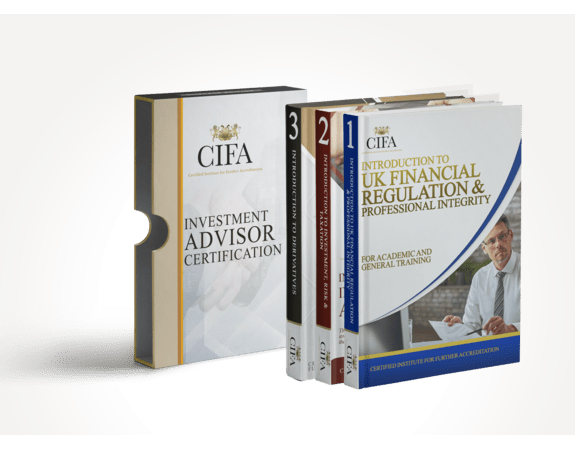Investment Advisor Certification in the UK: A Comprehensive Guide
https://cifa.ac/home/bundle/In....vestment-Advisor-Cer
Becoming a certified investment advisor in the UK is a crucial step for professionals looking to provide financial guidance and manage client investments. Certification not only ensures compliance with regulatory standards but also builds trust with clients by demonstrating expertise and professionalism.
In this guide, Cifa.ac explores the certification process for investment advisors in the UK, the key qualifications required, and the benefits of becoming certified.
1. Why Certification is Essential for Investment Advisors
Certification is more than a regulatory requirement—it is a mark of competence and integrity. Key reasons include:
Regulatory Compliance: Ensures adherence to the standards set by the Financial Conduct Authority (FCA).
Consumer Trust: Builds credibility and confidence with clients.
Market Competitiveness: Distinguishes professionals in a competitive industry.
Enhanced Knowledge: Equips advisors with the skills to navigate complex financial markets.
2. Regulatory Framework: The Role of the FCA
The Financial Conduct Authority (FCA) oversees the regulation of investment advisors in the UK. To provide investment advice, individuals must:
Be employed by an FCA-authorized firm.
Obtain an appropriate qualification from an FCA-recognized body.
Meet the FCA’s “Fit and Proper” requirements, including honesty, integrity, and financial soundness.
3. Key Certifications for Investment Advisors
Several qualifications are recognized by the FCA, each catering to different specializations within investment advisory services:
1. Diploma in Regulated Financial Planning (DipPFS)
Offered by the Chartered Insurance Institute (CII).
Covers essential areas like financial planning, taxation, and investment principles.
2. Level 4 Diploma in Investment Advice (DipIA)
Provided by the Chartered Institute for Securities and Investment (CISI).
Focuses on investment products, portfolio management, and financial regulations.
3. Level 6 Chartered Wealth Manager Qualification
Also offered by CISI.
Designed for professionals managing complex client portfolios.
4. RQF Level 4 Diploma in Financial Planning
Offered by various accredited providers.
Covers topics such as pensions, investments, and risk management.
4. Steps to Becoming a Certified Investment Advisor in the UK
Step 1: Meet the Educational Requirements
Obtain a recognized diploma or certification in financial planning or investment advice.
Choose a course that aligns with your career goals and specialization.
Step 2: Join an Authorized Firm
Seek employment with an FCA-regulated firm authorized to offer investment advice.
Step 3: Pass the Fit and Proper Assessment
Demonstrate honesty, financial stability, and professional competence.
Step 4: Maintain Ongoing Competence
Complete Continuing Professional Development (CPD) annually to stay updated on regulatory changes and market trends.
5. Benefits of Investment Advisor Certification








